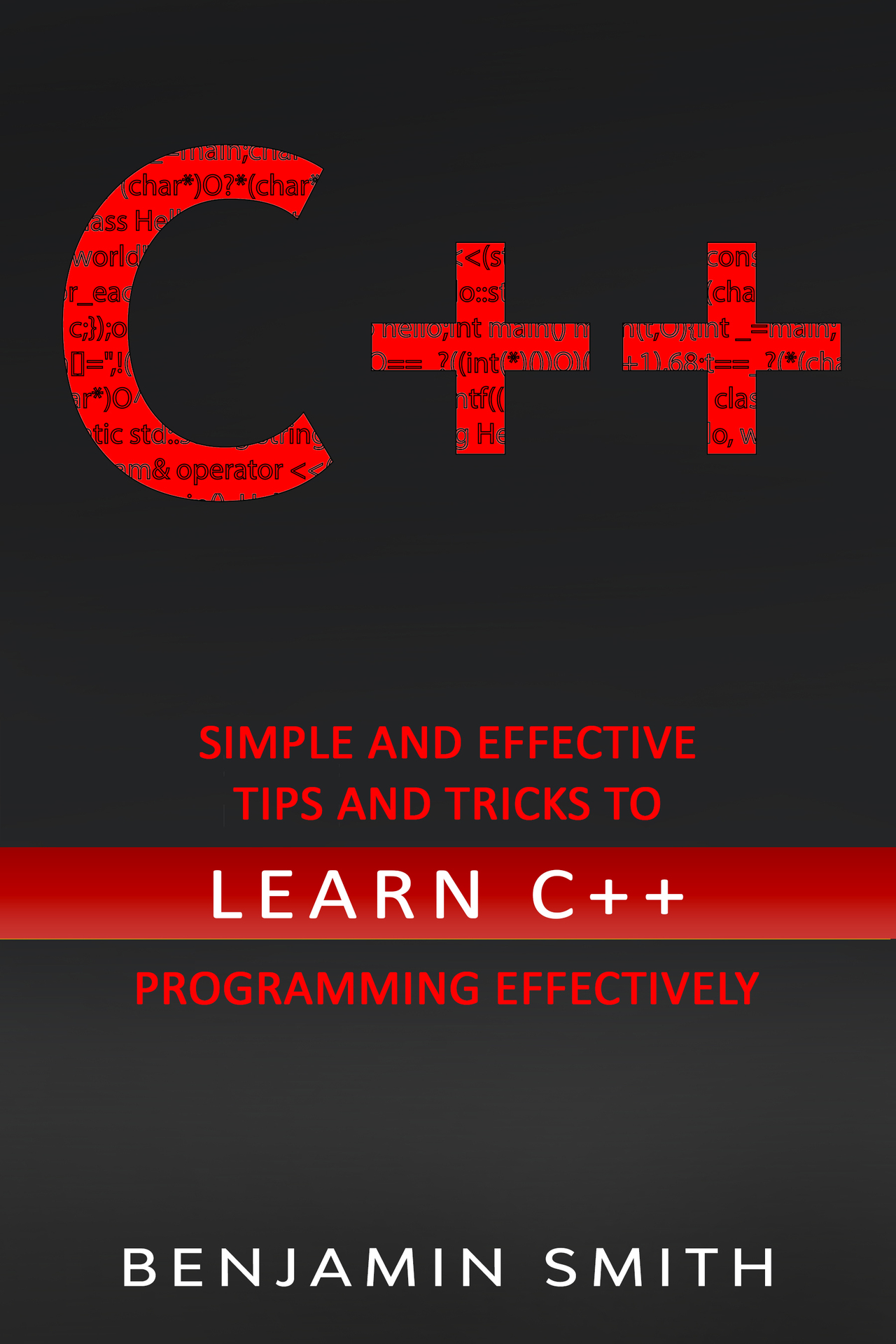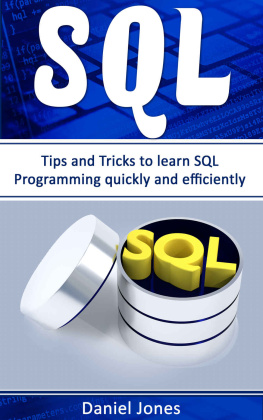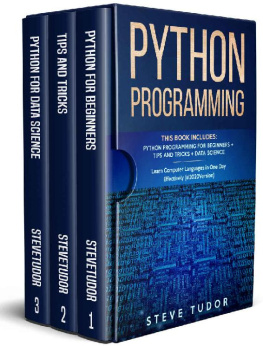Smith - C++: Simple and Effective Tips and Tricks to learn C++ Programming Effectively
Here you can read online Smith - C++: Simple and Effective Tips and Tricks to learn C++ Programming Effectively full text of the book (entire story) in english for free. Download pdf and epub, get meaning, cover and reviews about this ebook. year: 2020, genre: Computer. Description of the work, (preface) as well as reviews are available. Best literature library LitArk.com created for fans of good reading and offers a wide selection of genres:
Romance novel
Science fiction
Adventure
Detective
Science
History
Home and family
Prose
Art
Politics
Computer
Non-fiction
Religion
Business
Children
Humor
Choose a favorite category and find really read worthwhile books. Enjoy immersion in the world of imagination, feel the emotions of the characters or learn something new for yourself, make an fascinating discovery.

C++: Simple and Effective Tips and Tricks to learn C++ Programming Effectively: summary, description and annotation
We offer to read an annotation, description, summary or preface (depends on what the author of the book "C++: Simple and Effective Tips and Tricks to learn C++ Programming Effectively" wrote himself). If you haven't found the necessary information about the book — write in the comments, we will try to find it.
Smith: author's other books
Who wrote C++: Simple and Effective Tips and Tricks to learn C++ Programming Effectively? Find out the surname, the name of the author of the book and a list of all author's works by series.
C++: Simple and Effective Tips and Tricks to learn C++ Programming Effectively — read online for free the complete book (whole text) full work
Below is the text of the book, divided by pages. System saving the place of the last page read, allows you to conveniently read the book "C++: Simple and Effective Tips and Tricks to learn C++ Programming Effectively" online for free, without having to search again every time where you left off. Put a bookmark, and you can go to the page where you finished reading at any time.
Font size:
Interval:
Bookmark:

- The Fundamental Characteristics of C++.
- Discussion of Object-Oriented Programming.
- Translation and Creation of C++ Programs.
- Modular programs that can be used universally.
- Efficient machine programming capability.
- Programs made in C++ can be easily ported over to other platforms.
- Data abstraction : creating classes to define objects while programming.
- Data encapsulation: obtaining a controlled access route to the data of the object.
- Inheritance: creating classes that are derived from other classes (classes can be even derived from multiple derived classes).
- Polymorphism: using an instruction set in such a way that it can boast different types of effect during the execution of the program code.
- It is the priority of the programmer to make sure that before the data can be used, it is initialized with proper and suitable values. Moreover, the programmer must also make sure that the data, and the proper values, can be passed to a function when required.
Font size:
Interval:
Bookmark:
Similar books «C++: Simple and Effective Tips and Tricks to learn C++ Programming Effectively»
Look at similar books to C++: Simple and Effective Tips and Tricks to learn C++ Programming Effectively. We have selected literature similar in name and meaning in the hope of providing readers with more options to find new, interesting, not yet read works.
Discussion, reviews of the book C++: Simple and Effective Tips and Tricks to learn C++ Programming Effectively and just readers' own opinions. Leave your comments, write what you think about the work, its meaning or the main characters. Specify what exactly you liked and what you didn't like, and why you think so.








